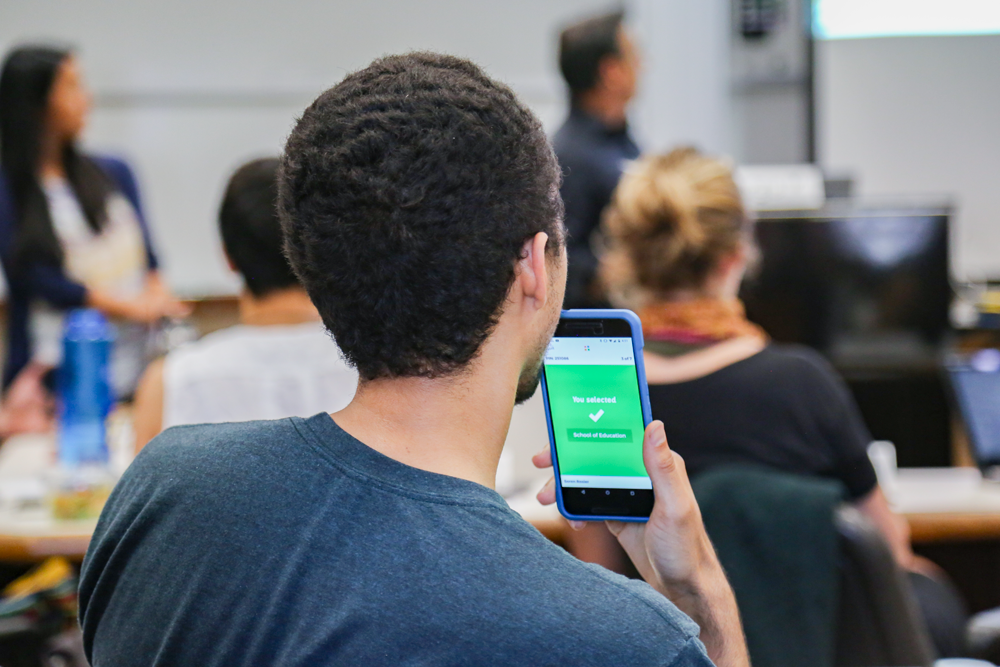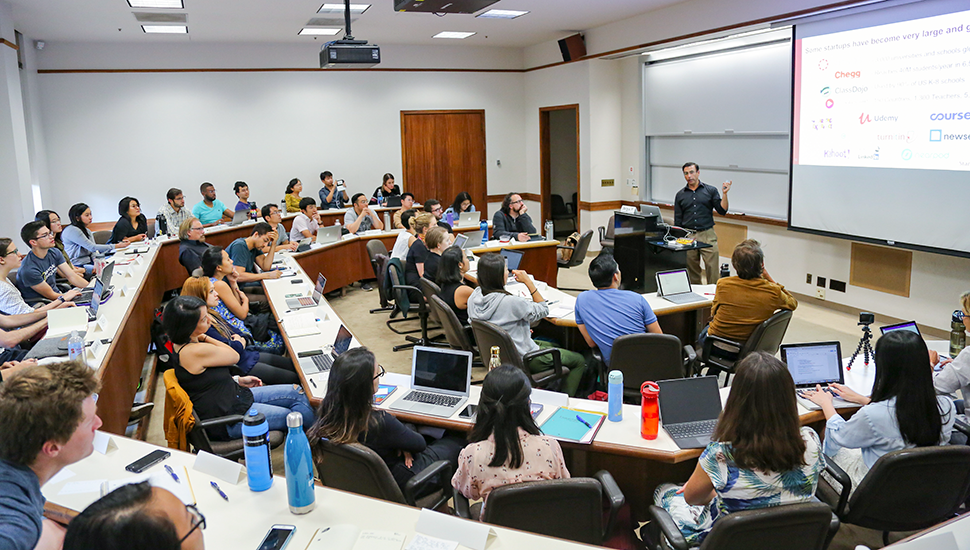For decades, innovation and entrepreneurship have been a part of the Stanford experience. Yet it can still be hard to know how to get an idea off the ground and launch it into the world.
A new initiative at Stanford Graduate School of Education hopes to ease that pathway for students and faculty in education.
—
The Entrepreneur in Residence Program, which launches in January, will bring one accomplished entrepreneurial leader to campus for a year at a time to provide mentorship and guidance to the GSE community on social impact, business strategy and design, and to help connect investors and other executives with researchers.
The EIR program will also serve to convene experts in the area of educational entrepreneurship. The EIR will lead various seminars, workshops and conferences to share real-world experiences with the GSE community and create development and engagement opportunities with relevant leaders.
“Our focus is on helping our students and faculty improve the lives of all learners through the research they do and the training programs they conduct,” says Geoff Cox, senior associate dean at the GSE. “With this program, we can help bridge what happens here with what’s happening outside academia. We can help our scholars bring their work, in innovative ways, to a wider audience.”
The first entrepreneur to hold this role will be Sergio Monsalve, who earned a BS degree in Management Science and Engineering from Stanford and an MBA from Harvard.


